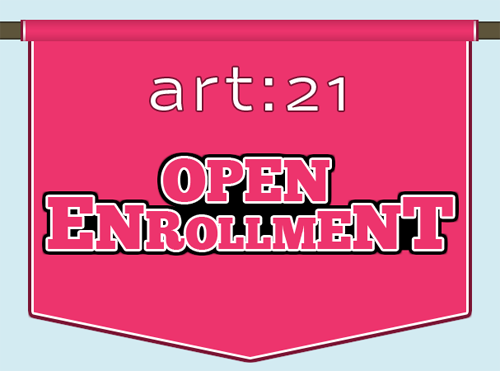At 7:30 am, the alarm clock on my Nokia cell phone rouses me from sleep. In preparation of the minus double-digit weather, I layer like a Renaissance oil painting —two pairs of tights, two pairs of socks, long underwear, black legwarmers over my jeans, one turtleneck and one wool sweater. My eyes and feet are glued to the ground lest I should tumble on the ice. The sun rises from a pink horizon as I walk to school.
My woodblock printing course officially begins at nine but students drift in around half-past. Today we will start to carve our blocks. Choosing a worthy subject for my woodblock has been agonizing. The process of preparing multiple blocks for color printing is time-consuming; I want to ensure I am adequately attached to the image that will surely take hours to whittle and chisel to life. Moreover, traveling has a tendency to afflict me with the artist’s equivalent of writer’s block. I have difficulty absorbing and producing simultaneously. Though I’ve tried, I cannot keep my eyes open when I sneeze.
Eventually, I decide on a photo I took of a house from the 1930s. The house is on Intiankatu, part of my daily walk to and from school. I get distracted at the library’s copy machine, flipping through the pages of a book on Matisse before heading back to class. Last month I saw Matisse’s Paysage marocain (Acanthes) (1912) at the Moderna Museet in Stockholm, Sweden. The soft lavender atmosphere and lush neon vegetation in Matisse’s painting are alien to the piercing white snow and deep indigo sky from my photograph. The drama of Finland’s climate and the exaggerated angles of the raking sunlight rework the natural world in a bewildering way. As a result, the majority of my recent sketches are brooding landscapes. I assumed that Helsinki’s distinct post-war architecture would be most captivating, but I have been oddly more enthralled with spruce and birch trees.
Throughout the morning, hardly anyone speaks. A Finnish radio station fills the printmaking studio with the spacious sounds of PJ Harvey’s autoharp. We wordlessly gouge into our blocks.
Around noon, the class breaks for lunch. Waiting for the eighth floor elevator with a few classmates, we discuss the weather, a perennial topic of conversation here. Finland, like other cold climates, has an extensive vocabulary for its longest season, the winter. Lumi is most commonly used word for snow but other descriptions of wintry precipitation include pyry, myräkkä, tuisku, hyhmä, loska, sohjo, ahtauma… Today we are not discussing the snow but rather the face-numbing temperature outside.
The conversation is honestly gripping. Finns keep to themselves, or so goes the stereotype. In the previous class, my printmaking professor Kari Laitinen had explained to me: “It will take longer than five months for us Finns to open up.” That my peers are engaging me in any conversation makes me giddy. The feeling is akin to the ecstasy of the prior month when the sun began to sporadically shed its winter cloak of opaque, gray clouds.
In the basement cafeteria at TAIK, I sit alone with my potatoes, shredded cabbage, and lentils. The cafeteria is full of students but each resonant note of Brian Eno’s “Deep Blue Day” is eerily audible. The music is a peaceful, near perfect mirror of this cold, clear day. Fifth and final cup of coffee in hand, I am content.
Suddenly, a stranger approaches my table and motions to an empty chair. He murmurs, “Onko vapaa?”
“Joo, on.” Though I can’t string together more than this pithy reply in Finnish, a more elaborate response would be excessive. We eat together, mutually avoiding eye contact and the superfluities of small talk.
Class ends late in the afternoon. I return to the library to edit a grant proposal, a residency application, and an interview. Around a quarter after five, I quit for the day. I take a round-about way home, nearly stepping on a dead, frozen rat.
Back at my apartment I procrastinate. I am trolling the Internet for news, gallery show reviews, art blogs—anything to banish the picture of the deceased varmint from my head. After dinner, I continue carving into the night. Splinters of pine accumulate on my desk as the wooden house slowly appears in my block.
By 8pm, my fingers begin to cramp. I can cut no longer. Restless, I head downtown to hear a friend’s band. One bus and two ATM machines later, I am in a booth at Bar Loose on Annankatu, chatting with a fellow painter friend. We rehash the news of the week in Helsinki—the Food Liberation Army’s abduction and subsequent decapitation of a Ronald McDonald statue from the eponymous fast food chain.
Time slips away. Soon it’s almost two in the morning. I take in the last sip of my Karhu beer and steel myself for the brisk walk to the Rautatientori. Saarinen’s Central Railway Station resembles his architecture on the campus of Cranbrook, beckoning a warm sense of familiarity. The Kivimiehet bid me goodnight as I depart. Peering out the window on the empty bus, I recall a print I saw earlier in the week at the Ateneum Art Museum. Under a full moon I imagine that I am a character in Erkki Sakari Heinonen’s Evening in a Village at the End of the World. From the bus stop I follow a winding path through a forest and sneak quietly into my room. Beer in my belly, I sleep soundly in my bed under my handmade Marimekko duvet cover.
